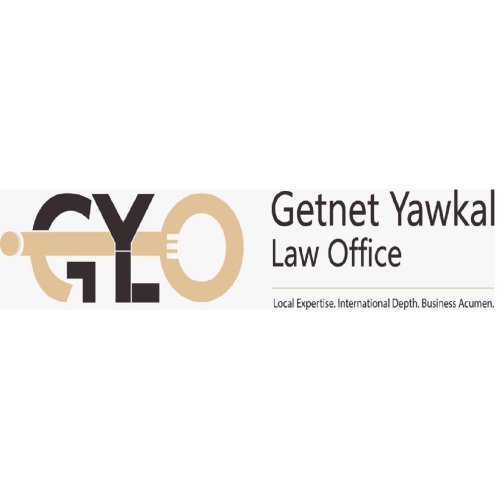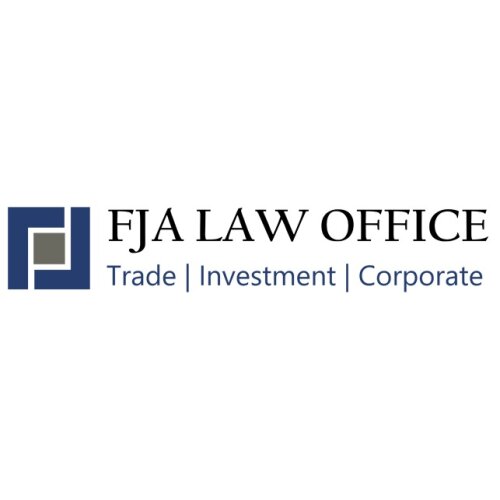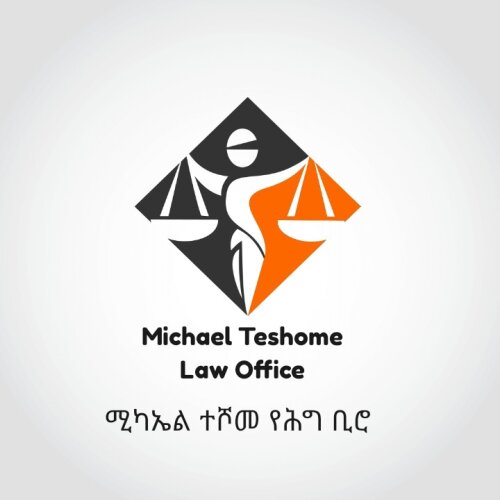Best Antitrust Litigation Lawyers in Ethiopia
Share your needs with us, get contacted by law firms.
Free. Takes 2 min.
Or refine your search by selecting a city:
List of the best lawyers in Ethiopia
About Antitrust Litigation Law in Ethiopia
Antitrust litigation law in Ethiopia deals with legal disputes arising from anti-competitive practices and unfair trade behaviors that restrict competition in the market. The main goal of antitrust laws is to ensure a fair and competitive business environment by preventing businesses from engaging in practices such as monopolies, cartels, price fixing, exclusive dealing, and abuse of dominance. Ethiopia's antitrust framework is designed to protect consumers, guarantee fair market access for smaller businesses, and promote economic efficiency.
Why You May Need a Lawyer
Antitrust litigation is often complex, involving detailed investigations and legal arguments. You may need a lawyer if you are facing one of the following situations:
- You are accused of participating in a cartel or price-fixing arrangement
- Your company is facing legal action for alleged monopolistic behavior or abuse of dominance
- You believe a competitor is engaging in unfair trade practices affecting your business
- You received a notice or summons from Ethiopian authorities relating to antitrust issues
- You wish to file a complaint about anti-competitive activities in your industry
- Your business practices are being investigated for potential antitrust violations
- You need advice on complying with local laws to avoid legal risks
An experienced lawyer can help you navigate investigations, represent you in court, provide strategic advice, and ensure your rights are protected.
Local Laws Overview
The main legal instrument governing competition and antitrust matters in Ethiopia is the Trade Competition and Consumer Protection Proclamation No. 813/2013. Key aspects of Ethiopian antitrust law include:
- Prohibition of anti-competitive agreements - Agreements between businesses that restrict competition, such as price fixing or market sharing, are not allowed.
- Abuse of dominant position - Companies with significant market power must not abuse their position by engaging in unfair practices like predatory pricing, refusal to supply, or exclusive dealing.
- Merger control - The law requires notification and possibly approval of certain mergers and acquisitions that may affect market competition.
- Consumer protection - The law also includes rules against deceptive or unfair business practices to protect consumers.
- Enforcement - The Trade Competition and Consumer Protection Authority (TCCPA) is responsible for investigating and enforcing antitrust laws in Ethiopia.
Frequently Asked Questions
What is considered an anti-competitive practice in Ethiopia?
Anti-competitive practices include price fixing, bid rigging, market sharing, abuse of dominance, predatory pricing, and exclusive agreements that prevent market entry or restrict competition.
Who can file an antitrust complaint in Ethiopia?
Any individual, business, or consumer affected by anti-competitive practices can file a complaint with the Trade Competition and Consumer Protection Authority.
What is the role of the Trade Competition and Consumer Protection Authority?
The TCCPA investigates complaints, enforces competition laws, reviews mergers, and issues penalties for violations. It serves as the main regulatory authority for antitrust matters in Ethiopia.
What penalties can arise from antitrust violations?
Penalties may include fines, restrictions on business practices, annulment of anti-competitive agreements, and in severe cases, closure of businesses or criminal charges.
Are all mergers subject to approval in Ethiopia?
Not all mergers require approval, but those that are likely to have a significant impact on market competition must be notified and reviewed by the TCCPA.
How long does an antitrust litigation process usually take?
The duration varies depending on the complexity of the case, but investigations and court processes can take several months or longer, especially if appeals are involved.
Can a business defend itself if accused of anti-competitive behavior?
Yes, businesses have the right to defend themselves during investigations and court hearings, and may present evidence or arguments to contest the accusations.
Is it possible to settle antitrust disputes out of court?
Yes, parties may reach settlements or agreements under the supervision of the TCCPA, but the authority must ensure that such agreements comply with the law and public interest.
Are there exemptions to antitrust laws in Ethiopia?
Certain actions or agreements that are proven to improve efficiency or benefit consumers may be exempt from antitrust prohibitions, but exemptions are granted on a case-by-case basis.
Do foreign companies operating in Ethiopia have to comply with local antitrust laws?
Yes, all companies conducting business in Ethiopia, whether local or foreign, are required to comply with the country's antitrust and competition laws.
Additional Resources
If you require more information or need assistance regarding antitrust litigation in Ethiopia, these resources can be helpful:
- Trade Competition and Consumer Protection Authority (TCCPA) - The main government body responsible for enforcing antitrust and consumer protection laws.
- Ministry of Trade and Regional Integration - Provides regulatory guidance and may issue policy updates related to trade and competition.
- Local legal associations - Professional associations such as the Ethiopian Lawyers Association can refer you to qualified lawyers experienced in antitrust litigation.
- Judicial institutions - Courts in Ethiopia, especially the Federal First Instance and High Courts, handle antitrust disputes and related appeals.
Next Steps
If you believe you are involved in an antitrust issue or need legal advice:
- Gather any documents, contracts, correspondence, or evidence related to your case.
- Identify and contact a lawyer experienced in Ethiopian competition law to discuss your situation.
- Prepare to explain the details of your issue and the specific outcomes you are seeking.
- Consider contacting the Trade Competition and Consumer Protection Authority if you wish to file a formal complaint or require regulatory clarification.
- Stay informed about deadlines, procedural steps, and legal requirements to ensure you do not miss important actions in your case.
Legal issues around antitrust and competition are best handled with professional advice. Acting early and seeking expert guidance can protect your rights, your business, and your reputation.
Lawzana helps you find the best lawyers and law firms in Ethiopia through a curated and pre-screened list of qualified legal professionals. Our platform offers rankings and detailed profiles of attorneys and law firms, allowing you to compare based on practice areas, including Antitrust Litigation, experience, and client feedback.
Each profile includes a description of the firm's areas of practice, client reviews, team members and partners, year of establishment, spoken languages, office locations, contact information, social media presence, and any published articles or resources. Most firms on our platform speak English and are experienced in both local and international legal matters.
Get a quote from top-rated law firms in Ethiopia — quickly, securely, and without unnecessary hassle.
Disclaimer:
The information provided on this page is for general informational purposes only and does not constitute legal advice. While we strive to ensure the accuracy and relevance of the content, legal information may change over time, and interpretations of the law can vary. You should always consult with a qualified legal professional for advice specific to your situation.
We disclaim all liability for actions taken or not taken based on the content of this page. If you believe any information is incorrect or outdated, please contact us, and we will review and update it where appropriate.
Browse antitrust litigation law firms by city in Ethiopia
Refine your search by selecting a city.

















